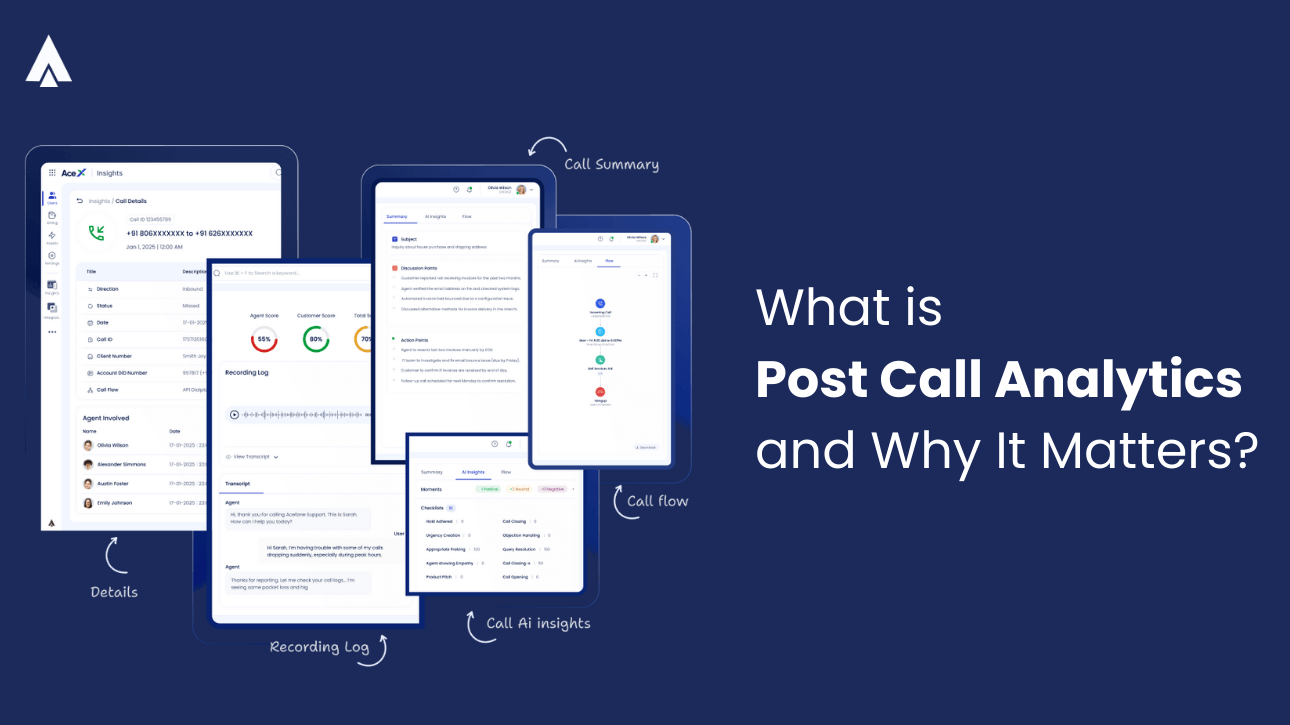Phone lines ringing continuously?
Representatives are busy speaking with callers back-to-back, and the call queue is piling up with waiting customers?
These lines read like a typical call center scenario.
To deal with such situations, you must ensure your team is equipped with the industry’s latest contact center solutions.
A hosted contact center that empowers your teams with advanced yet easy-to-use features and optimizes contact center operations.
Your contact center team is not just a representation of a query-handling department but also the primary point of contact for customers. Contact centers help you reach out to your target audience, understand their pain points, and fine-tune your products or services based on their requirements.
How can a hosted contact center solution be any different?
Let’s find out.
What is a Hosted Contact Center?
A hosted auto dialer solution operates using cloud technology and is hosted on the cloud. You can access it anywhere on any registered device (desktops and smartphones). On the contrary, traditional contact centers have traditional phone systems and customer databases maintained on-premises.
Hosted contact center solution is set up and maintained off-premises by their respective contact center service providers. They are better than traditional contact centers as they provide centralized access to crucial information and are highly cost-effective. It enables hosted call center software to deliver seamless, scalable, and efficient communication solutions.
Benefits of a Hosted Contact Center Solution
Many modern businesses are choosing hosted contact centers over traditional on-premises setups, and for good reason. Their cost savings, scalability, and AI capabilities—like auto attendants and intelligent routing—reflect some of the same benefits of auto dialer technology in streamlining outbound operations.
Here are the key advantages:
-
Cost Savings
A hosted contact center solution helps reduce overall operational costs compared to traditional on-premise systems. With no hardware setup or physical infrastructure required, you can save on capital expenses. Additionally, they follow a subscription model, removing unpredictable maintenance costs and enabling better budget control. By switching to a hosted VoIP contact center, you can avoid telecom charges and lower IT support needs, resulting in significant savings over time.
-
Seamless Scalability
One of the major advantages of a hosted call center is the ability to scale instantly. Whether you’re onboarding seasonal staff or expanding into new markets, adding users or call center features is quick and hassle-free. Unlike legacy systems that require physical expansion, a hosted contact center solution grows with your business—making it ideal for r-paced or growing teams.
-
Empowering a Remote Workforce
A hosted VoIP contact center enables agents to work from anywhere using just a computer and an internet connection. With this flexibility, you can hire top talent globally, support 24/7 service across time zones, and eliminate the cost of physical office space.
Leading contact center solution providers offer tools that help your workforce stay agile, connected, and productive—no matter where they are.
-
Fast Deployment and Low Maintenance
Deploying a hosted call center solution is significantly faster than setting up on-premise systems. There’s no need for technical installations or complex hardware. Your provider handles updates, bug fixes, and maintenance, allowing your team to focus on customer service instead of IT upkeep. All you need is internet access and basic devices to get started.
-
Feature-Rich Hosted Call Center Software
A robust hosted call center software comes packed with features that enhance agent performance and customer satisfaction. These include:
- IVR systems for automated routing
- Real-time dashboards for performance tracking
- Call recording and monitoring tools
- Self-service options like AI chatbots
- Analytics and reporting features
With these tools built into your hosted call center , you improve both service efficiency and agent accountability.
-
Reduced Staffing Requirements
A hosted call center automates routine processes and centralizes operations. This reduces the need for dedicated IT teams and support staff. Additionally, self-service portals, omnichannel dashboards, and AI-powered tools allow fewer agents to handle more queries effectively. With all this, you can optimize your staffing budget while maintaining high standards of service.
-
AI and Omnichannel Capabilities
Modern hosted contact center solutions support advanced, AI-driven features like:
- Omnichannel communication (voice, chat, email)
- Intelligent call routing (IVR, auto attendants, skill-based logic)
- Chatbots, speech analytics, and sentiment detection
- Detailed reporting and agent coaching tools
These capabilities empower agents to resolve queries faster and personalize every interaction, strengthening customer relationships.
-
Enhanced Customer Experience
A hosted contact center platform enables customers to connect through their preferred channels, be it calls, messaging apps, or email. Features like short wait times, intelligent routing, and multichannel visibility ensure smoother customer journeys. With convenience being a top priority for customers, a cloud-based experience matters more than ever.
-
Improved Internal Collaboration
Integrated communication tools within hosted call center solutions improve agent collaboration. Team messaging, warm transfers, and shared ring groups enable smoother handoffs and real-time support among colleagues. This leads to faster resolutions and a more cohesive support experience for both agents and customers.
-
Security and Reliability
Leading hosted contact center providers ensure enterprise-grade security, including end-to-end encryption, compliance with GDPR, HIPAA, and PCI-DSS, and 24/7 monitoring. With geographically distributed data centers, you also get 99.95% uptime, automatic backups, and built-in disaster recovery, guaranteeing both data protection and business continuity.
For more information about Omnichannel Contact Center, Read our Guide to Omnichannel Contact Center.
How does a hosted contact center work?
With hosted contact center software, you don’t need to worry about managing complex hardware or software systems. Instead, you rent access to a secure cloud-based platform provided by a third-party vendor who takes care of the heavy lifting.
Here’s what’s included:
-
Infrastructure
Your provider handles all the essential infrastructure—servers, storage, networking gear, and other resources—hosted in secure data centers or cloud platforms. You don’t have to invest in or maintain any of it yourself.
-
Agents:
You hire a team of experts who connect with your customers via phone, email, chat, or social media. They access the hosted system through a web interface or a dedicated app provided by your service provider.
-
Routing:
Customer queries are automatically routed to the right agent based on rules you set—like skill level, working hours, or location. The hosted contact center software handles the logic, ensuring your customers are always directed to the best-fit agent.
-
Applications:
Your team uses browser-based tools that give them access to phone controls, CRM integrations, chat interfaces, analytics dashboards, and reports—all in one place.
-
Administration:
You don’t need to worry about maintenance or updates. Your provider manages everything behind the scenes. You get easy-to-use web portals to control agent settings, call flows, and performance reporting.
-
Scalability:
As your call volume changes, you can easily scale up or down. You only pay for what you use, which keeps your costs predictable and under control.
-
Disaster Recovery:
Because the infrastructure is hosted across multiple locations in the cloud, your operations remain protected and uninterrupted—even if something goes wrong locally.
In essence, hosted contact center software gives you a flexible, cost-effective way to deliver great customer experiences—without the hassle of managing the tech yourself.
Features for Hosted Contact Center Software
Having a hosted contact center solution itself will not guarantee your success in the long run. You must ensure your team has a business contact center service with the latest and crucial features. We have consolidated a list of some of the features your hosted contact center software must have to leverage from and keep you ahead of the competition.
-
Interactive Voice Response (IVR)
Interactive Voice Responses (IVR) systems greet your callers with preprogrammed greetings. You can tailor these greetings to your audience preferences, as they will be your business’s first customer interaction point.
IVR systems help callers select their service type by punching designated numbers from the in-call menu. The caller is then automatically directed to the corresponding department, saving the agent and the caller’s time.
Furthermore, contact center service providers customize and develop hosted IVR solutions to handle basic customer queries. For instance, callers who need to connect with a particular department can call the helpline number on your website, and the IVR can guide them there.
Consequently, the customer needn’t wait to speak to an agent and get their query resolved in a shorter time. It also helps agents focus on more prominent and pressing concerns needing expertise.
-
Automatic Call Distribution (ACD)
The ACD helps route customer calls efficiently to the available contact center agents. The Automatic call distribution system in a hosted contact center solution enables you to route calls based on set criteria to meet your ongoing campaign and customer requirements.
A hosted call center solution also allows you to modify the call distribution per your evolving requirements. Some distribution criteria are based on performance, location, and idle time.
ACD systems also contribute significantly to the cost reduction of the hosted contact center’s operations. Experts recommend that implementing an ACD system can reduce the cost of call transferring involved in resolving customer queries. That makes ACD systems a crucial factor for businesses when choosing contact center service providers.
-
Skill-Based routing
Contact center agents are categorized based on skills, demographics, speaking capabilities, and expertise. Every time a caller connects to your business contact center, the IVR prompts a set of questions to understand their requirement. The hosted call center software solution then directs the call to the appropriate agent, creating a smooth customer experience. In sectors like healthcare, skill-based routing can be complemented by robust healthcare identity verification systems to ensure patients are routed securely to the right specialists. This approach helps improve the first-call resolution rate, boost customer satisfaction, and eliminate the possibility of wasting both customers’ and agents’ time.
-
Call Recording
A hosted contact center can consist of several agents who may differ widely based on their availability and specific skills. Despite their unique skill sets and differences, agents must aim to resolve customer queries as quick as possible, while providing relevant solutions and meeting industry standards.
Hosted contact center solutions come with multiple call recording capabilities to ensure that agents deliver on time. The feature records call in real-time and can be used to review an agent’s performance. It helps locate bottlenecks in agent-customer interactions and identify those who need training to improve their performance.
-
Call Tracking & Monitoring
Tracking and monitoring your contact center’s performance is as crucial as setting one up. Issues may arise at any time and require immediate attention. Agents may miss calls or repeatedly fail to satisfy customers. Call tracking and monitoring help you identify such scenarios and determine a workaround for future operations.
Moreover, call tracking & monitoring helps you recognize technical glitches at the right time. You can monitor calls for repeated issues, identifying and rectifying the issue’s origin. Also, Hosted contact center solutions with tracking & monitoring features enable you to gauge individual agent performance.
-
CRM Integrations
Access to relevant information is crucial to your hosted contact center’s success. Providing your agents with vital customer information enables them to resolve issues faster and with more relevant resolutions.
Many contact center providers offer integration with popular CRM platforms. Here are some of the platforms that Acefone offers you and are identified as the most popular Contact Center CRM Integrations of 2024 by PCMag—
CRM integration helps contact center agents offer relevant solutions, save time, and obtain the correct information for a better customer experience. Similarly, client management software can centralize customer interactions and improve business workflows
-
Real-Time Analytical Reports
Deriving reports from data is as important as generating them. Empowering your business contact center agents with insightful analytical reports helps you monitor varying call volume, new/ returning callers, and traffic from different locations. These metrics help you make essential staffing decisions, schedule agents, and gauge the performance of your contact center.
You can also recognize issues related to specific demographics, time zones, etc., and work towards rectifying them. Furthermore, a hosted contact center software allows managers and supervisors to access reports from multiple locations in one place.
Who Should Consider a Hosted Contact Center?
Hosted call center solutions are ideal for businesses that want to modernize their customer communication without the hassle of managing on-site infrastructure. If your organization falls into any of the categories below, it’s time to seriously consider a hosted contact center solution:
- Growing Businesses: If your team is scaling rapidly and you need a flexible, easy-to-deploy system without investing in hardware, hosted solutions are perfect.
- Remote or Hybrid Teams: Hosted contact centers allow agents and supervisors to work from anywhere while staying connected with cloud-based tools.
- Multi-Channel Support Needs: The Most Intriguing Cloud Hosting Statistics that handle voice, chat, email, and social media interactions will benefit from unified hosted call center software.
- Cost-Conscious Organizations: Those looking to reduce CapEx and prefer predictable, monthly hosted contact center pricing models.
- Customer-Focused Enterprises: If customer experience is a strategic priority, these platforms offer advanced tools like AI, sentiment analysis, and real-time monitoring to drive better engagement.
How to Choose a Hosted Contact Center Provider?
Choosing the best solution for your business requires a thoughtful approach. Use these steps to ensure the software you pick aligns with your goals and budget.
1. Identify Key Communication Channels
Start by identifying the primary communication channels your team and customers rely on. Whether it’s phone, email, or chat, your hosted call center solutions should support the ways you connect. Make sure to account for the popular channels across sales, support, and other customer-facing teams.
2. List the Must-Have Features
Next, define the essential features you need in your hosted call center solution more productive:
- AI & Automation: Do you require smart call routing, AI-driven chatbots, real-time sentiment tracking, or speech analytics?
- Call Management: Consider features like IVR systems, call queues, scheduled callbacks, or skills-based routing.
- Agent & Supervisor Support: Look for tools like live call monitoring, whisper coaching, and agent assist.
- Self-Service Options: Will you use AI-powered virtual assistants, chatbots, or integrate a knowledge base?
3. Check Security & Compliance
When dealing with sensitive data, strong security and regulatory compliance are non-negotiable. The best hosted call center solutions comply with industry standards such as:
- PCI-DSS (for secure credit card transactions)
- HIPAA (for healthcare businesses)
- GDPR and CCPA (for regional data privacy compliance)
- SOC 2 and ISO 27001 (for robust data protection)
Also, confirm the presence of encryption, redundant data systems, and failover support for uptime reliability.
4. Explore Integration & Customization Capabilities
Your solution must integrate easily with existing third-party systems. Check compatibility with:
- Popular CRM platforms like Salesforce or Zoho
- Helpdesk tools such as Zendesk, Freshdesk, or ServiceNow
- Marketing automation tools like Pardot, Outreach, or Marketo
- Workforce management and analytics platforms
If you need a customized setup, look for providers that offer open APIs or low-code customization.
5. Compare Pricing
Establish a clear budget, ideally on a per-agent, per-month basis, and compare various pricing structures. Some vendors offer pay-per-user or usage-based models. Make sure to account for additional expenses, like advanced AI features, analytics tools, or third-party integrations.
Understanding the entirety of the hosted contact center pricing structure upfront helps avoid surprise costs later.
6. Try Before You Buy
Always take advantage of free trials or demo versions. Ask your agents to test the interface, features, and overall usability of different solutions. This hands-on approach lets you measure the value of each feature and how often your team uses different communication channels.
7. Evaluate Customer Support & SLAs
Reliable technical support is essential for your contact center to run smoothly. Make sure your provider offers:
- 24/7 customer service via phone, chat, or email
- Clear SLAs with guaranteed uptime (99.99% is ideal)
- Fast response times for any outages or service issues
Implementing a self-service knowledge base, such as Document360, provides 24/7 support while empowering both agents and customers with instant answers.
High-quality support ensures your hosted call center solutions stay up and running when it matters most.
How Acefone helps to set up a Flexible Hosted Contact Center?
Modern hosted call center solutions offer the freedom to build a contact center that grows and evolves with your business. Here’s how you can set up a flexible system:
- Choose Scalable Infrastructure: Opt for a provider that supports adding users, channels, and locations as needed without major disruptions.
- Customize with Integrations: Make sure your platform integrates with your CRM, helpdesk, marketing tools, and WFM systems.
- Enable Omnichannel Communication: Ensure support for voice, chat, email from one unified interface.
- Support Remote Work: Choose features like browser-based dashboards, mobile apps, and secure agent logins.
- Adopt Pay-As-You-Go Models: Select a pricing plan that fits your budget and avoids unnecessary spending.
With the right provider, you get a platform that will adjust to your business needs, no matter how fast things change.
Getting Acefone hosted contact center for your business
Hosted contact center solutions have become the norm. With customer needs increasing over time, you must scale your contact center’s capabilities to stay ahead of the trends and competitors. Hosted contact center as a service enable you to be flexible and equip your agents with tools to deliver a seamless customer experience.
Acefone offers a robust, easy-to-deploy hosted contact center solution designed for flexibility, scalability, and cost efficiency. Our platform includes intelligent call routing, IVR systems, AI-powered virtual agents and real-time analytics, and CRM integrations, everything you need to streamline workflows and elevate agent performance. With secure architecture, 99.99% uptime, and 24/7 support, Acefone helps you deliver consistent and high-quality customer interactions across all touchpoints.
If you’re searching for a contact center solution that allows you to carry out all the above-mentioned responsibilities at a cost-effective rate, feel free to get in touch with our experts.
Hosted Contact Center FAQs
A hosted contact center is a cloud-based solution where a third-party provider manages the infrastructure, software, and maintenance of a company’s customer interaction platform. Instead of purchasing and managing their on-site hardware and software, businesses can outsource these functions to a service provider, gaining flexibility, scalability, and reduced upfront costs. Read more about Cost Benefits of Switching to a Hosted Phone System
A cloud based contact center is a customer service solution that manages all inbound and outbound customer communications via the internet, using cloud computing technology. Unlike traditional setups, it uses contact center software to support voice, chat, email, and more, offering flexibility, scalability, and cost savings.
While often used interchangeably, a cloud contact center typically implies a multi-tenant, scalable solution delivered via the cloud. A hosted contact center solution, on the other hand, may refer to single-tenant deployments managed offsite by hosted contact center providers. Both offer remote access, but differ in customization and hosted contact center pricing models.
Modern hosted call center platform offer omnichannel support via voice, email, chat, alongside IVR, real-time analytics, CRM integration, and AI tools. With hosted call center solutions, you can get 24/7 uptime, global accessibility, and seamless agent collaboration.
Contact center experience is all about how your customers feel when they interact with your customer service teams. This includes everything from calling in to using a chat service or social media. It’s a key part of your overall customer experience and can impact aspects such as loyalty, retention, and future purchases.
No, hosted call center pricing typically covers only voice-based services, such as inbound and outbound calling, IVR, call routing, and voicemail. Features like chat, email, and social media support are usually part of a Acefone contact center solutions.














